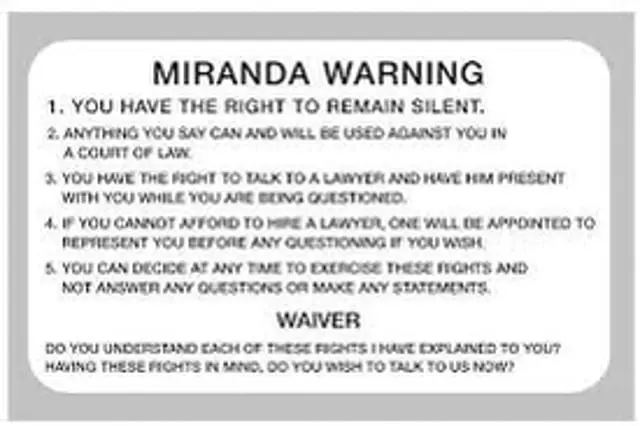Smoking cessation is a critical public health issue, with numerous legal implications for individuals, businesses, and healthcare providers. The legal landscape surrounding smoking cessation involves a myriad of regulations and laws aimed at protecting public health, regulating tobacco products, and ensuring that individuals have the resources and support needed to quit smoking. This article explores the various legal aspects of smoking cessation, including the relevant laws, the role of attorneys, and strategies for navigating this complex legal area.
Understanding Smoking Cessation Laws
Smoking cessation laws are designed to reduce the prevalence of smoking and its associated health risks. These laws include regulations on tobacco advertising, restrictions on smoking in public places, and requirements for health warnings on tobacco products. In addition, there are specific laws that provide for smoking cessation programs and resources, funded by tobacco taxes or settlements with tobacco companies.
Relevant Laws and Regulations
The Family Smoking Prevention and Tobacco Control Act
The Family Smoking Prevention and Tobacco Control Act gives the FDA authority to regulate the manufacture, distribution, and marketing of tobacco products. This act includes provisions to restrict the sale of tobacco products to minors, mandate warning labels, and ban certain forms of tobacco advertising.
State and Local Smoking Bans
Many states and local governments have enacted smoking bans in public places, such as restaurants, bars, and workplaces. These laws aim to protect non-smokers from secondhand smoke and encourage smokers to quit by reducing the number of places where they can smoke legally.
Tobacco Master Settlement Agreement
The Tobacco Master Settlement Agreement (MSA) is a landmark legal settlement reached in 1998 between the tobacco industry and 46 U.S. states. The MSA imposed restrictions on the marketing of tobacco products and provided funding for smoking cessation programs and public health campaigns.
Enforcement of Smoking Cessation Laws
These laws are enforced by various governmental agencies, including the Food and Drug Administration (FDA) and the Centers for Disease Control and Prevention (CDC). They aim to limit the availability of tobacco products, educate the public about the dangers of smoking, and support individuals in their efforts to quit.
FDA Enforcement
The FDA’s Center for Tobacco Products oversees the implementation of tobacco regulations. This includes conducting inspections of tobacco product manufacturers and retailers, issuing fines for violations, and working to ensure compliance with advertising and marketing restrictions.
State and Local Enforcement
State and local health departments play a key role in enforcing smoking bans and other tobacco control measures. This can involve conducting inspections, responding to complaints, and collaborating with law enforcement to ensure compliance.
Legal Strategies for Smoking Cessation
Legal strategies for addressing smoking cessation involve both litigios and regulatory approaches. Attorneys play a crucial role in representing clients in smoking-related lawsuits, advocating for stronger public health regulations, and advising clients on compliance with existing laws.
Litigios
Class Action Lawsuits Against Tobacco Companies
Class action lawsuits have been a powerful tool for holding tobacco companies accountable for the health impacts of their products. These lawsuits often seek damages for individuals who have suffered smoking-related illnesses and aim to deter future misconduct by the tobacco industry.
Individual Lawsuits for Smoking-Related Illnesses
In addition to class actions, individuals can file personal injury lawsuits against tobacco companies. These cases typically involve claims that the tobacco companies failed to warn consumers about the risks of smoking or misrepresented the safety of their products.
Litigation to Enforce Public Smoking Bans
Legal action can also be taken to enforce public smoking bans. This may involve suing businesses that violate smoking bans or challenging the adequacy of enforcement efforts by government agencies.
Regulatory Advocacy
Lobbying for Stricter Tobacco Regulations
Attorneys and public health advocates work to influence legislative and regulatory bodies to adopt stricter tobacco control measures. This can involve drafting legislation, testifying before legislative committees, and building coalitions to support public health initiatives.
Advocating for Comprehensive Smoking Cessation Programs
Legal professionals can advocate for the establishment and funding of comprehensive smoking cessation programs. These programs should provide access to counseling, medications, and other resources to help individuals quit smoking.
Advising Policymakers on Public Health Strategies
Attorneys with expertise in public health law can advise policymakers on the most effective strategies for reducing smoking rates. This can include recommending evidence-based interventions, evaluating the impact of proposed regulations, and providing legal analysis of public health policies.
The Role of Attorneys in Smoking Cessation
Attorneys specializing in smoking cessation play a pivotal role in both preventative and reactive legal measures. They offer legal consultation and representation in cases involving smoking-related health issues, workplace smoking policies, and public health regulations.
Medidas preventivas
Advising Businesses on Compliance
Attorneys can help businesses understand and comply with smoking bans and other tobacco regulations. This can include conducting compliance audits, developing workplace policies, and training employees on the legal requirements.
Educating Clients on Their Rights
Legal professionals can educate individuals and organizations about their rights under smoking cessation laws. This can involve providing information about protections against workplace discrimination for smokers, the availability of smoking cessation resources, and the legal implications of smoking bans.
Assisting in the Development of Workplace Smoking Cessation Programs
Attorneys can assist employers in developing and implementing workplace smoking cessation programs. These programs can include providing access to counseling and medications, creating smoke-free workplace policies, and offering incentives for employees who quit smoking.
Reactive Measures
Representing Clients in Smoking-Related Litigation
Attorneys can represent clients in lawsuits related to smoking cessation, whether they are plaintiffs seeking damages for smoking-related illnesses or defendants facing enforcement actions for violating smoking regulations.
Negotiating Settlements in Smoking-Related Lawsuits
Many smoking-related lawsuits are resolved through settlements. Attorneys can negotiate favorable settlements for their clients, ensuring that they receive adequate compensation and that the terms of the settlement are fair and just.
Defending Clients Against Enforcement Actions
Attorneys can defend individuals and businesses facing enforcement actions by regulatory agencies for violations of smoking cessation laws. This can involve challenging the evidence presented, arguing for leniency, and negotiating compliance agreements.
Smoking Cessation Programs and Resources
Numerous programs and resources are available to support individuals in their efforts to quit smoking. These include government-funded programs, non-profit organizations, and private sector initiatives. Legal professionals can guide clients to these resources and assist in accessing the support they need.
Government Programs
CDC’s Tips From Former Smokers Campaign
The CDC’s Tips From Former Smokers campaign features real people who have experienced the health consequences of smoking. This campaign provides motivation and resources to help individuals quit smoking and stay smoke-free.
State and Local Health Department Cessation Programs
Many state and local health departments offer smoking cessation programs, including counseling, support groups, and access to nicotine replacement therapies. These programs are often funded by tobacco taxes and settlements.
Medicaid Coverage for Smoking Cessation Treatments
Medicaid provides coverage for smoking cessation treatments in many states. This can include counseling, medications, and other resources to help individuals quit smoking. Attorneys can help clients navigate the complexities of Medicaid coverage and access the treatments they need.
Non-Profit Organizations
American Lung Association
The American Lung Association offers a variety of resources to help individuals quit smoking, including counseling, support groups, and educational materials. They also advocate for stronger tobacco control policies and support research on smoking cessation.
American Cancer Society
The American Cancer Society provides information and support for individuals looking to quit smoking. Their resources include quitlines, online tools, and access to support groups. They also fund research on the health impacts of smoking and the effectiveness of cessation programs.
Campaign for Tobacco-Free Kids
The Campaign for Tobacco-Free Kids works to reduce tobacco use among young people through advocacy, education, and public policy initiatives. They provide resources for individuals and organizations working to implement smoking cessation programs and policies.
Private Sector Initiatives
Employer-Sponsored Smoking Cessation Programs
Many employers offer smoking cessation programs as part of their employee wellness initiatives. These programs can include access to counseling, medications, and support groups, as well as incentives for employees who quit smoking.
Health Insurance Coverage for Cessation Treatments
Health insurance plans often cover smoking cessation treatments, including counseling, medications, and other resources. Attorneys can help clients understand their coverage options and access the treatments they need.
Pharmaceutical Company Programs for Nicotine Replacement Therapy
Pharmaceutical companies often offer programs to support individuals using nicotine replacement therapies, such as patches, gum, and lozenges. These programs can include discounts, counseling, and support groups.
Case Studies in Smoking Cessation Litigation
Several high-profile cases have shaped the legal landscape of smoking cessation. These cases provide valuable insights into the strategies used by attorneys and the outcomes achieved for their clients.
Case Study 1: Class Action Lawsuit Against Tobacco Companies
In a landmark class action lawsuit, a group of plaintiffs successfully sued several major tobacco companies for deceptive marketing practices and failure to warn about the dangers of smoking. The lawsuit resulted in a multi-billion dollar settlement, which funded smoking cessation programs and public health campaigns across the United States. The case set a precedent for holding tobacco companies accountable for the health impacts of their products.
Case Study 2: Enforcement of Public Smoking Bans
In a notable case, a city sued several businesses for repeatedly violating public smoking bans. The court ruled in favor of the city, imposing hefty fines on the businesses and mandating stricter enforcement of smoking bans. This case underscored the importance of compliance with public health regulations and demonstrated the legal consequences of violating smoking bans.
Case Study 3: Individual Lawsuit for Smoking-Related Illness
An individual plaintiff sued a tobacco company for failing to warn about the health risks of smoking, claiming that his lung cancer was caused by long-term tobacco use. The jury awarded the plaintiff significant damages, recognizing the tobacco company’s responsibility for the plaintiff’s illness. This case highlighted the potential for individuals to seek compensation for smoking-related health issues through the legal system.
Ethical Considerations in Smoking Cessation Law
Attorneys practicing in the field of smoking cessation must navigate various ethical considerations. These include maintaining client confidentiality, avoiding conflicts of interest, and ensuring that their advocacy efforts are aligned with public health objectives.
Confidencialidad
Protecting client information in sensitive health-related cases is paramount. Attorneys must ensure that all communications and documents related to smoking cessation cases are kept confidential. This includes managing the confidentiality of settlement agreements and ensuring that client information is not disclosed without consent.
Conflict of Interest
Avoiding representation of conflicting interests is essential in smoking cessation litigation. Attorneys must disclose any potential conflicts to clients and obtain informed consent before proceeding with representation. This ensures that clients receive unbiased and effective legal counsel.
Public Health Advocacy
Balancing client interests with broader public health goals is a key ethical consideration. Attorneys must engage in ethical lobbying and advocacy efforts, ensuring that their actions support the reduction of smoking prevalence and the protection of public health. This includes promoting evidence-based interventions and advocating for policies that benefit the community.
Trends and Future Directions in Smoking Cessation Law
The legal landscape of smoking cessation is continually evolving, with new trends and developments shaping the field. Emerging issues such as the regulation of e-cigarettes, the impact of COVID-19 on smoking behaviors, and the role of technology in smoking cessation are influencing the direction of smoking cessation law.
E-Cigarette Regulation
The rise of e-cigarettes has introduced new legal challenges and regulatory responses. Profesionales del Derecho must navigate the complex landscape of e-cigarette regulation, which includes age restrictions, marketing bans, and health warnings. Public health advocacy plays a crucial role in ensuring that e-cigarette regulations protect consumers and reduce youth access to these products.
COVID-19 and Smoking
The COVID-19 pandemic has affected smoking behaviors and smoking cessation efforts. Legal implications include the need for enhanced smoking cessation programs to address increased stress and smoking rates during the pandemic. Post-pandemic trends may involve continued emphasis on smoking cessation as part of broader public health initiatives.
Technology in Smoking Cessation
Advancements in technology offer new opportunities for smoking cessation. Mobile apps and digital platforms provide accessible resources for individuals looking to quit smoking. Legal considerations for technology-based cessation programs include data privacy, accessibility, and the efficacy of digital interventions.
Conclusión
Smoking cessation is a complex and multifaceted issue with significant legal implications. Attorneys specializing in smoking cessation play a critical role in representing clients, advocating for public health policies, and guiding individuals through the legal challenges associated with quitting smoking. By understanding the relevant laws, employing effective legal strategies, and staying informed about emerging trends, attorneys can contribute to the broader goal of reducing smoking prevalence and improving public health.
This comprehensive exploration of smoking cessation law highlights the importance of legal expertise in addressing one of the most pressing public health issues of our time. Attorneys.Media provides valuable resources and insights for legal professionals in this field, supporting their efforts to navigate the complexities of smoking cessation law and achieve positive outcomes for their clients.
Attorneys.Media Video Document References
- Is Personal Injury Part of Your Law Practice?
- As an Attorney, How Are You Generating Content for Your Online Presence?
- How Can You Help Potential New Clients Get Their Questions Answered?
- How Do You Differentiate Yourself When Someone Looks Online for Help?
- How Do You Differentiate Yourself as a Criminal Defense Attorney?
- Have You Been Thinking About Video Marketing for Your Law Firm?
- Should Attorneys Use Video Marketing to Attract New Clients?
- What Do Potential Clients See When They Research Your Name Online?
- Cómo puede ayudarle Attorneys.Media









